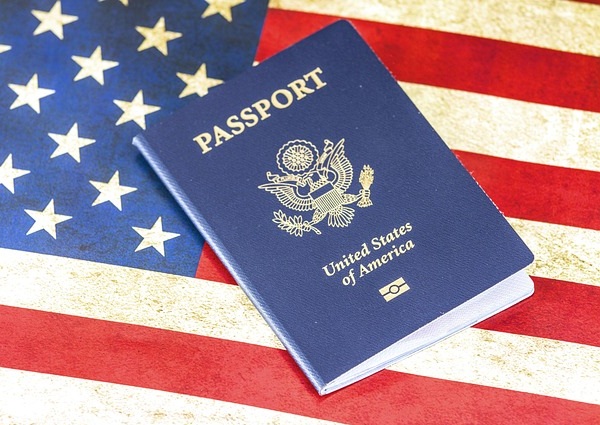Can a Bondsman Refuse to Help?
News and Resources
A lot of people are under the impression that when you contact a bail bonding agent in an effort to get your friend or loved one released from jail that they have to help. But is this true? Is the bail agent compelled to assist everyone that calls or walks through his door? Or does he take things on a case by case basis?
Nothing is Guaranteed
There is no guarantee that you’ll get the result you want when you ask a local bail agent for assistance in extricating your loved one from jail. While it’s likely they’ll agree they nonetheless retain the right to refuse if they conclude your situation doesn’t match their definition of acceptable risk. Let’s look at some things that might raise red flags with bondsmen and potentially result in them turning down a request for help.
The Initial Assessment Process
When you call a bondsman looking for help the first thing he’ll do is ask a series of questions to try and get an idea of what’s going on. While most have their own set of criteria that must be met before they’ll agree to help the conversation usually begins with them trying to determine if your loved one is a flight risk. As such, they’ll ask questions like:
- Is the arrested person a US citizen?
- Does he or she live and work in the area?
- Does he or she have other ties to the community?
- Is the person currently married and do they have children?
- How long have they had their current job?

If they are satisfied with your responses they’ll likely move on to questions regarding the defendant’s current situation, including:
- What is the full name of the arrested person?
- Where are they being held?
- When were they arrested?
- What is their booking number?
- What crime are they accused of?
Again, if they are satisfied with what they hear they’ll likely agree to help. If, however, something they heard didn’t sit well with them they are likely to decline your request for assistance. What could cause them to do that?

Some Reasons a Bondsman Might Turn Down a Request for Help
Again, the bail agent is under no obligation to post a bond for anyone. Although, because most have a genuine interest in seeing justice done and understand the importance of their position, they tend to be predisposed to help. If they turn someone down it’s for a good reason. Such as:
- The person is an undocumented immigrant – Undocumented immigrants who get arrested are not necessarily deported on the spot. They still have rights and one of those rights is to pursue an immigration bond. There are different kinds of immigration bonds and we don’t have space to discuss them all here. The important thing is that some bail agents will assist with immigration bonds and some will not.
- The person has no ties to the community – Even if the person is a citizen of the US it’s very possible they have few, if any, ties to the community. They may have just arrived a few months ago in search of work or a new start or whatever. People with no real ties to the community are known to be a substantially higher flight risk and for that reason the bonding agent may decline.
- Inability of co-signer to qualify – This may seem cold-hearted, but think about it: would you lend money to someone you knew could not pay you back? If so, you may be a champion human being, but you wouldn’t last long in the bail business.
Unacceptable Reasons for Refusal
The bail agent has wide discretionary power when it comes to deciding who to help and who to decline. However, he is not allowed to pick and choose in a way that contravenes state or federal anti-discrimination laws. That is, he’s not allowed to turn someone down based solely on their race, sex, national origin, disability, age, marital status or sexual orientation.
Frequently Asked Questions
Yes, a bail bondsman can legally refuse to post bail. They are not obligated to accept every client and may decline if they believe the case presents an unreasonable risk.
Bail agents may refuse service if the defendant is an undocumented immigrant, has no ties to the community, is considered a high flight risk, or if the co-signer cannot meet financial qualifications.
No, they are not legally required to give a detailed explanation, though many will explain their decision, especially if it involves risk assessment or eligibility concerns.
Yes. A bondsman cannot refuse service based on race, gender, religion, national origin, disability, age, or sexual orientation, as these actions would violate anti-discrimination laws.
No. Some bail agents specialize in standard criminal bail and do not handle immigration bonds due to their complexity and added risk. It’s best to ask in advance if they provide this service.
The agent typically asks about the defendant’s citizenship, employment, family ties, community connections, and the nature of the charges. They use this to evaluate flight risk and repayment likelihood.
If the co-signer cannot demonstrate the ability to cover potential losses, the bail bondsman may deny the request. The co-signer’s financial reliability is essential to secure the bond.
There is no formal appeal process since bondsmen are private businesses. However, you can contact another agency-different bondsmen may assess your situation differently and choose to help.
The Bottom Line
Without a doubt, the most common reason a bail agent will decline a request for help is that he believes the accused to be too much of a flight risk. And that’s because if the person flees after being released the agent will lose the bond they put up. In addition, they may have to hire a bounty hunter to go after the fugitive, which is going to cost even more money. Sure, they will be able to pursue relief from the indemnitor for their losses, but that process could take years. The bottom line is that the bail bonds agent is almost always willing to help. But they have to balance the needs of the defendant against their own legitimate needs before agreeing to do so.
Contact Info
Tayler Made Bail Bonding is available 24 hours a day and 7 days a week.
(303) 623-0399email@taylermadebailbonding.com
3595 South Teller Street
Suite 300A
Lakewood, CO 80235
@TaylerMadeBail

